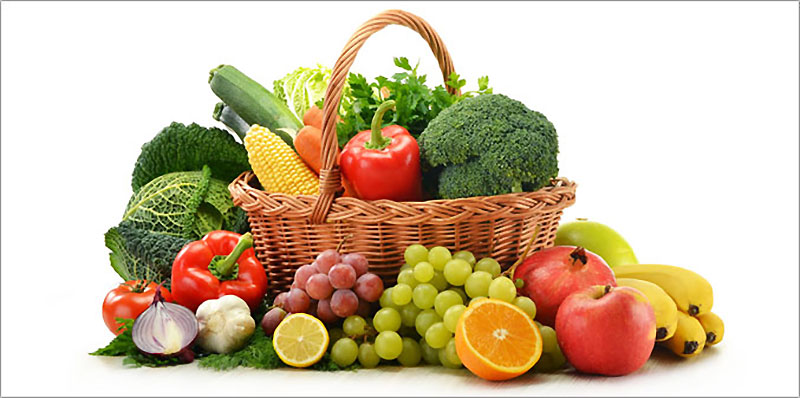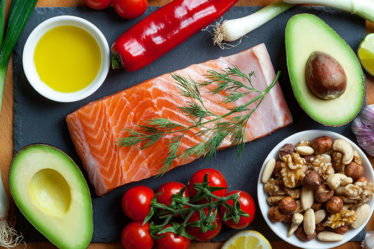
The vegetarian diet has a history that dates back far back before our modern era. Originally practiced for mostly religious reasons, vegetarianism has grown beyond that to become the preferred diet of millions of people for reasons ranging from, health, to ethical, to environmental and religious. A vegetarian diet is one that, in its strictest sense abstains from eating meat, poultry, or seafood. However, as vegetarianism has become more popular, it has also become more varied, so that there are currently many different dietary patterns which all identify themselves as a vegetarian. There are;
- Vegans; They do not eat animal-derived foods or products including gelatin, eggs and dairy products.
- Lacto-Ovo Vegetarians: Are Vegetarians who although they do not eat meat, poultry or fish, eat eggs and dairy products.
- Lacto Vegetarians: These do not meat, poultry, fish, or eggs, but they consume dairy products.
- Ovo Vegetarians: Do not eat meat, poultry, fish, or dairy products, but they eat eggs.
- Partial Vegetarians: May eat fish or poultry, but they avoid eating meat.
Unlike in the past, plant-based foods are now not only recognized as capable of supplying the body’s nutritional needs, but they are also considered superior in their ability to drastically lower the risk of many chronic diseases. An appropriately planned vegetarian diet is recognized by the American Dietetic Association as a viable tool in maintaining health, as well as in the prevention, treatment, and management of certain diseases.
Professor of epidemiology and nutrition at Harvard Medical School, Dr. Walter Willett, has noted that if most people went on a vegetarian diet, not necessarily vegan, about one-third of early deaths could be prevented. Typically, vegetarians, as a whole, tend to consume far less calories than people on other kinds of diet. As a result they have a much lower inclination to become obese, compared people who eat meat as a regular part of their diets. With their lower Body Mass Index also comes a disposition away from developing many of the diseases that are responsible for most early deaths.
Pros and Cons of the Vegetarian Diet
Pros
- Higher energy levels: Individuals feel more energetic.
- Improved bowel movements: A vegetarian diet results in better bowel conditions and eliminates constipation
- A lower body weight: Fish-eaters, vegetarians, and vegans usually have a lower BMI than meat-eaters.
Cons
- Without proper planning, vegetarians may end up eating a diet of junk food that is high in calories.
- A vegetarian diet, due to its elimination of one food group, may negatively impact gut bacteria
- Injuries may take longer to heal, due to absence of animal protein in diet.
- Vegetarians have to become label-reading experts to decode what is in store-bought foods
- There is a significant risk of Vitamin B12 deficiency because it can only be obtained from animal products
Who this eating plan is for
This diet is recommended for people who are trying to manage or prevent chronic conditions, such as heart disease or Type 2 diabetes.
It is also suitable for anyone looking for a weight-loss program with a lot of dietary variation
What are some of the foods allowed and disallowed in a Vegetarian diet
Allowed
- All plant-based foods and products.
Disallowed
- Most animal-based foods and products, depending on the kind of vegetarian diet in question
Medical benefits of The Vegetarian Dietary Plan
- Heart Disease: In contrast to meat-eaters, vegetarians usually consume less saturated fat and cholesterol, while simultaneously taking in more dietary fiber, vitamins C and E, magnesium, folic acid, potassium and phytochemicals. As a consequence, their LDL levels, blood pressure, and body mass index are often lower.
- Cancer; A large number of studies show a positive correlation between consumption of fruits and vegetables to a lower risk of developing certain types of cancers. On the whole vegetarians appear to have less cancer than meat-eaters.
- Type 2 Diabetes. A diet that leans more towards plants reduces the risk for type 2 diabetes.
- Lower Blood Pressure: Vegetarians in general and Vegans in particular have been shown to have lower blood pressure than the rest of the population.
- Decreases asthma symptoms: People suffering from asthma showed a decrease in symptoms when put on a vegan diet. Many of them reported less dependency on asthma medications.
Famous Athletes on The Vegetarian Diet
Martina Navratilova; International tennis superstar who is still playing in her fifties, credits her longevity in the game to a strict vegan diet.
Joe Namath; famous New York Jets Football legend
Ricky Williams; The Miami Dolphin’s player decided to go vegetarian shortly before the 2005 season.
Venus Williams; The Wimbledon Champion went vegetarian following a diagnosis of Sjogren’s syndrome
James Jones; NBA Basketball Player for Detroit Piston
David Carter: Of the Chicago Bears’ is called “The 300-Pound Vegan”
Are there any medical studies on the Vegetarian plan
A study comparing vegetarian and non-vegetarian Seventh-day Adventists and another analysis of data from five studies involving over 76,000 participants, showed that non-vegetarians were, on average, four times more likely to die of heart disease than vegetarians.
A study involving 65,000 people in the Oxford cohort of the European Prospective Investigation into Cancer and Nutrition found vegetarians had a 19% lower risk of death from heart disease.
The Oxford Vegetarian Study began in 1980; it recruited 11,040 participants for the study. Analysis of the collected data showed vegans had lower total cholesterol and LDL cholesterol level than meat eaters



